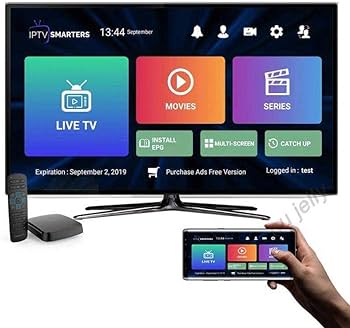In recent years, Internet Protocol Television IPTV has revolutionized the television industry, reshaping the way we consume media and interact with content. Unlike traditional television broadcasting methods such as satellite and cable, IPTV leverages the internet to deliver television programming, offering a plethora of benefits that have catalyzed its rapid adoption and growth. This shift from conventional broadcast and cable systems to IPTV marks a significant transformation in how audiences access and experience television. One of the most notable advantages of IPTV is its flexibility. Traditional TV services often require viewers to adhere to fixed schedules and channel lineups, but IPTV enables on-demand access to a vast array of content. With IPTV, viewers can watch their favorite shows, movies, and sports events at their convenience, eliminating the constraints of scheduled programming. This flexibility extends to the ability to pause, rewind, or fast-forward content, providing a more personalized and user-centric viewing experience.

Moreover, IPTV’s use of internet infrastructure allows for a more streamlined and integrated approach to content delivery. Unlike cable or satellite TV, which necessitates a separate set-top box and often complex installation procedures, IPTV services can be accessed through a variety of devices, including smart TVs, computers, tablets, and smartphones. This versatility not only enhances accessibility but also supports the growing trend of multi-screen viewing, where users seamlessly transition between different devices while maintaining access to their content. The rise of IPTV has also been accompanied by an explosion in content diversity and Get the facts. IPTV providers often offer a broad range of channels, including niche genres and specialized programming that might not be available through traditional TV services. This increased variety caters to a more diverse audience and allows for a richer and more tailored viewing experience. Furthermore, IPTV platforms frequently incorporate additional features such as interactive content, live streaming, and integration with social media; further enhancing viewer engagement and satisfaction.
Economic factors play a significant role in the adoption of IPTV as well. Traditional cable and satellite services often involve higher costs, including equipment rental fees and premium channel packages. In contrast, IPTV services are typically more cost-effective, offering a subscription-based model that can be more affordable and transparent. This cost efficiency, combined with the ability to select and pay for only the desired content, makes IPTV an attractive option for budget-conscious consumers. As technology continues to advance, the potential of IPTV to further innovate the television landscape is substantial. The integration of artificial intelligence and machine learning can enable even more personalized content recommendations and viewing experiences. Additionally, as 5G networks become more widespread, the speed and reliability of IPTV services are expected to improve, allowing for higher-quality streaming and enhanced interactive features. In conclusion, IPTV represents a paradigm shift in television consumption, offering unparalleled flexibility, content diversity, and cost-effectiveness. As it continues to evolve, IPTV is poised to further transform the media landscape, setting new standards for how we access and enjoy television content.